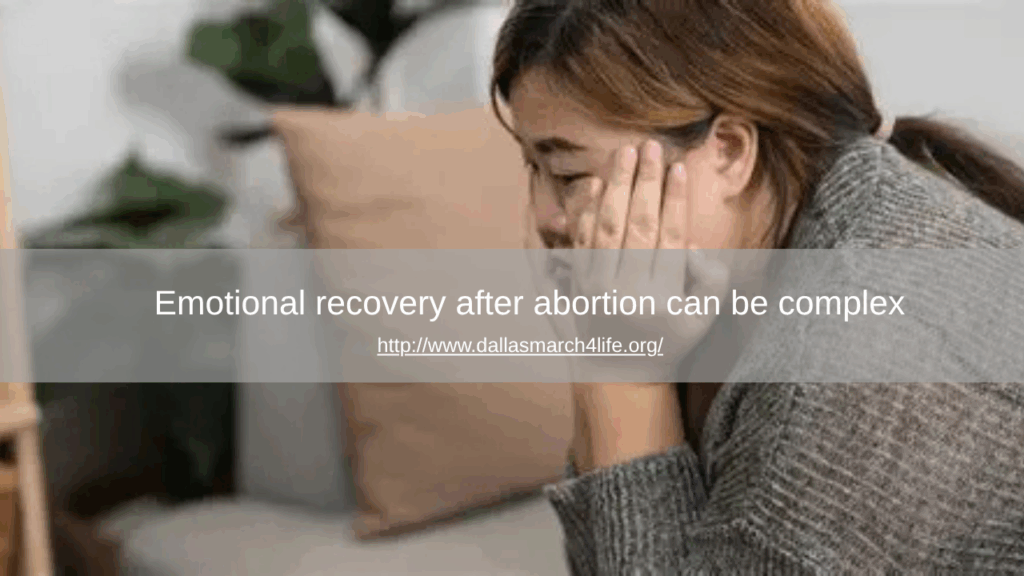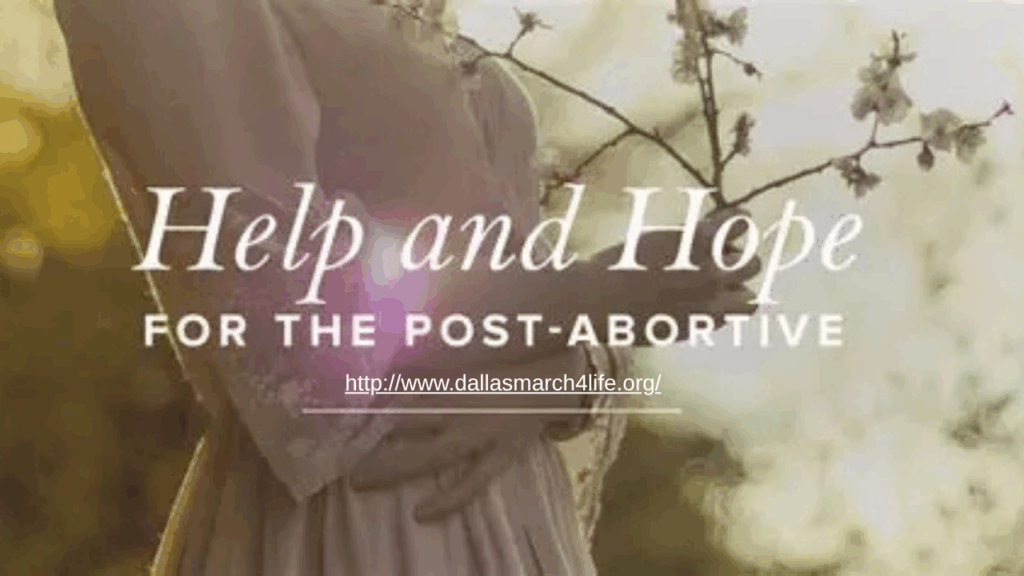
Abortion is a deeply personal experience, and while physical recovery is often addressed, the emotional and mental effects can be overlooked. Many women face feelings of sadness, guilt, anxiety, or even depression long after the procedure. Understanding how trauma can impact mental health is essential for anyone seeking to navigate this challenging journey. At Dallas March for Life, we emphasize a holistic, compassionate approach to healing, offering individualized care that addresses the mind, body, and spirit.
Recognizing the Emotional Impact of Abortion
Emotional responses to abortion can vary greatly. Some women may feel relief, while others experience prolonged distress. Common mental health challenges include:
- Depression: Persistent sadness, loss of interest, or difficulty finding joy in daily activities.
- Anxiety: Ongoing worry, nervousness, or feelings of tension that interfere with normal routines.
- Guilt and Shame: Emotional struggles tied to personal beliefs, cultural expectations, or societal pressure.
- Post-Traumatic Stress: Intrusive memories, nightmares, or heightened sensitivity to reminders of the event.
Acknowledging these feelings is the first step toward seeking help and beginning the healing process.
Why Healing Requires Compassionate Support
Healing after abortion is not simply about addressing emotions temporarily. Trauma affects the brain, body, and spirit. Without professional support, unresolved emotional distress can contribute to unhealthy coping mechanisms, including substance use or self-isolation. Facilities that integrate mental health treatment with holistic care provide a safe space for women to process their experiences and regain emotional stability.
Holistic Approaches to Mental Health Recovery
At Dallas March for Life, care extends beyond conventional counseling to address the whole person. Key approaches include:
Individual Counseling
Personalized therapy allows women to explore complex emotions, identify triggers, and develop effective coping strategies. This one-on-one approach ensures care is tailored to each individual’s unique experience.
Group Therapy and Peer Support
Participating in group sessions creates a sense of community and validation. Sharing experiences with others who understand the challenges of post-abortion trauma reduces feelings of isolation and fosters resilience.
Faith-Based Support
For women who value spiritual guidance, faith-based counseling integrates emotional healing with spiritual principles. This approach offers hope, forgiveness, and a sense of purpose, enhancing overall recovery.
Inpatient and Outpatient Programs
Depending on the severity of emotional distress, structured inpatient care or outpatient programs provide consistent monitoring, therapy, and skill-building. These programs are designed to help women regain control, confidence, and emotional balance.
Connecting Mental Health and Addiction Recovery
Unaddressed trauma can increase vulnerability to addiction or self-destructive behavior. By offering integrated mental health and addiction recovery services, women receive comprehensive support that addresses the root causes of distress and promotes long-term well-being. Holistic care ensures that emotional, physical, and spiritual needs are all considered in the recovery process.
Taking the First Step Toward Healing
If you or a loved one is struggling with emotional distress after abortion, reaching out for help is a courageous and vital step. Professional counseling, supportive peer groups, and holistic care programs provide the guidance and tools needed for true emotional recovery. At Dallas March for Life, compassionate professionals are ready to offer personalized support, helping women navigate the challenges of trauma and rediscover hope and peace.
Conclusion
Trauma after abortion can profoundly affect mental health, but healing is possible. With individualized, faith-based, and holistic support, women can address emotional distress, prevent unhealthy coping behaviors, and regain control of their lives. Mental wellness is an essential part of being truly pro-life, and taking action today can lead to long-term emotional recovery. Contact a trusted professional or a pro-life support organization to begin the journey toward healing and renewed well-being.




